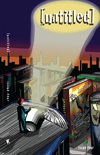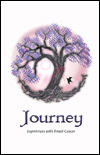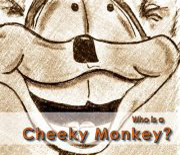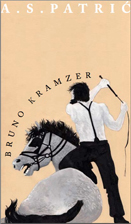

Month: May 2013
Welcome to the Busybird blog, where you can find helpful articles, updates, industry news and more. Make sure you stay up to date by signing up to our newsletter below.
Reading the Right Things.
May 29, 2013Maybe you read to distract yourself and escape into a reality that is not your own; possibly you are motivated by the prospect of learning new things and accumulating new knowledge; most likely you read because you get some semblance of enjoyment from it. In any case, reading is important. Evidently, as you are reading this, you think so too.
However, many people feel embarrassed or ashamed because they are not reading the ‘right’ thing. These people hide the cover of their books in public (if they ever take them out of their house) because they’re reading a paranormal romance like Twilight rather than an acclaimed classic, such as The Great Gatsby. They lie about or skirt over what they’re reading because they feel anxious that their reading habits will be found out and ridiculed. Even worse, they think that they themselves will be ridiculed.
This is not the atmosphere we want to create. We want our audience to be excited about reading, not apprehensive. When 46% of Australians aged between 15 and 74 have literacy levels below what is considered necessary to get by in everyday life, it would be wrong to discourage reading merely because we find the writing bland or the plot convoluted. That someone wants to read at all should be celebrated.
There is undeniably a sizable gap in the quality of writing between Stephanie Meyer and F. Scott Fitzgerald: Stephen King stated that Meyer ‘can’t write worth a darn.’ However, it is impossible to dismiss the Twilight saga, and other inexplicably best-selling novels (i.e. Fifty Shades of Grey), as poorly written stories that don’t deserve the success they have achieved. It is these books that have reignited public interest in reading and greatly supported the publishing world, which in today’s world can’t be anything but a good thing.
There is nothing wrong with someone reading popular novels or romances or even online fan fiction; to say otherwise is to suggest that there is something wrong with reading. If you don’t like reading those types of fiction, don’t stop someone else who does.
So far I have read an eclectic and varied group of books this year, from Great Expectations (Charles Dickens) to Company (Max Barry) to The City of Bones (Cassandra Clare). Some I’ve liked more than others, and some I would recommend. The point is, though, that I haven’t regretted reading any of them. If it encourages you to read and to continue reading, if you get some enjoyment from it, then it is the right thing to read.
Ariel Skippen.
Readings.
May 23, 2013When I was enrolling to study (writing and editing) years ago, one of the teachers told me a prerequisite of the course was monthly readings, and that there was an obligation that students read at least twice yearly.
Readings! What the hell …? Not an attractive proposition for somebody as naturally insular as myself. The thought terrified me. I also didn’t really understand the relevance behind needing to do it.
Come the first readings I attended, I began understanding some of the merit behind the idea. I watched the audience. Studied how they engaged with the reader. Gauged what worked with them and what didn’t. Just basically examined the relationship between reader and audience to attempt to determine how and when it functioned well, and how and when it didn’t.
Usually, students were meant to read writing from various assignments they might’ve just completed. This might’ve been something as ambitious as a novel or short story, or as simple as a sense of character or place piece.
When it came my time to read, I decided none of those would do. Who wanted to hear about my office? And my fiction didn’t have self-contained scenes I felt comfortable reading, or which I thought might connect. I needed to write something specifically for the audience – or at least something that would immerse them and make them attentive to me for the time that I read.
That’s when I truly began to comprehend the importance of readings. Writing is only a small part of the writing game. Putting words on the page and revising the hell out of it is a great place to start, but you need to consider how your work will fare with its intended audiences. Giving it to friends/colleagues for feedback is one thing. Seeing how it succeeds or fails when every set of eyes is devoted to you is another matter altogether.
Does that idea work? Could that phrase be better? Did that joke you thought a riot get the laughs you thought it would? Did the audience await with baited breath during the tense passages? When you’re writing, you can only hope you’re positively answering these questions – at least in your own mind. Readings give you concrete proof, particularly with the people who matter most: your audience (and people you hope may one day buy your book). You’ll see what works, what doesn’t, what’s fine, and what needs improvement.
Readings are a pivotal facet of development in any writer’s writing life. On the pragmatic side of things, if writing is something you’re pursuing, then readings are something you’ll probably have to do as a means of marketing yourself, whether you’re a best-selling author or not.
We had our first readings last night and had a great turnout, with some fantastic readings and even a couple of songs. Our next reading is on the 26th June, 7.30–9.00pm. Come down, try your stuff out, or listen to others, and see how things work. Whatever the case, it’s great fun.
LZ.
Launch.
May 14, 2013 Whilst Busybird has been around for over fifteen years, for the bulk of that time we were a business focused on design and photography. Our evolution into publishing has been recent – since late 2008, when we decided to begin our own fiction anthology, which everybody would know as [untitled].
Whilst Busybird has been around for over fifteen years, for the bulk of that time we were a business focused on design and photography. Our evolution into publishing has been recent – since late 2008, when we decided to begin our own fiction anthology, which everybody would know as [untitled].
Since then, we’ve produced five issues of [untitled], two issues of page seventeen, as well as the nonfiction anthology Journey: Experiences with Breast Cancer (a portion of proceeds going to BreaCan and WHOW) and the children’s book Who’s a Cheeky Monkey? (with all proceeds going to Destiny Rescue). 
We’re now working on a sixth issue of [untitled], a companion book to Journey about prostate cancer (for which we’re still trying to find a perfect title – please email us if you have a idea), and have a host of other great projects in the pipeline.

We’ve also helped a number of authors self-publish their own books, providing services ranging from editing to layout to design. If there’s one thing we love, it’s stories, and helping people get out their own stories.
The next step in our evolution is the opening of our studio. We moved in several weeks ago, and have been working hard on making it home. Here you’ll find the Busybird team, as well as the books we’ve worked on. Feel free to drop in to chat about our projects or the services we can provide. We’re also going to be hosting a whole assortment of great workshops.
Otherwise, please join us for the Grand Opening of our studio this Thursday, 16th May, from 7.00pm. We also have on display the exhibition, In the Suburbs of the Heart, by linvanhek, which will be launched by poet/musician Joe Dolce. The exhibition will run from 16th May–6th June.

Details:
Busybird Studio:
2/118 Para Road
Montmorency 3094
(Melway reference 21 B5)
For catering purposes, please RVSP Blaise by email us or call 0416 157 281.
A Vignette with A.S. Patric.
May 9, 2013How/why did you get into writing?
If literature is a mirror on life, writers are the kinds of people that don’t really see themselves in sheets of glass or mirrors. I grew up in the western suburbs of Melbourne but I saw my reflection more clearly in Russian novels from the nineteenth century or American Science Fiction from the 1960s and 70s. At some point a reader understands that life is a narrative and that it’s possible to find a bit of authority over you own story if you start writing.
Do you plan out your story, or work it out along the way?
There are writers that say they need to map it all out before they set out on the journey. Otherwise they might lose their way – realising after they’ve gotten from point A to point B that point C is nowhere. They lose weeks or even years in a literary wilderness that might have been avoided with better preparation. For me, the wilderness is the whole point (A, B and C). That sense of peril in the writing can’t be faked, and peril is what sets the blood coursing through sentences. The reason we go out into the wilderness is so that we can return with something on the page that hasn’t already been domesticated.
Any writing habits which help you write?
Writing is itself a habit. Like every habit, it gets stronger the more it’s done. I write every day. Sometimes I write from sunup to sundown but it’s never less than an hour every day.
What do you love about writing?
According to Chuang Tzu a rabbit trap exists because of the rabbit and once you’ve caught the rabbit you can forget the trap. He goes on to say that a word is a trap and meaning is the rabbit. Once you’ve got the meaning you don’t need the word anymore. What I love about writing is building these diabolical machines that are essentially traps for much larger beasts. Some have been known to trap full grown men and women.
Anything you hate about writing?
It’s a sad fact that only a few writers in Australia (it is less than a one in a million deal, statistically speaking, maybe even one in two million) who make as much from novels annually as a garbage collector does for picking up bins. Almost all writers make far, far less than Tim Winton and your local garbo.
Any tips for other writers?
Reading is essential. Reading for pleasure. Reading for edification. Reading broadly. Reading deeply. Reading as religion. In terms of writing tips though, all any writer ever need read is the Paris Review Interviews. There are four volumes in book form and even more Q&As online. It’s such a vast literary resource you’ll never need to go anywhere else for writing tips.
You’ve got a couple of short story collections out at the moment — how do you feel about the short story form?
I feel like I’m living in the short story Renaissance. This is slightly offset by the death throes of Literature. Well, at least, that’s something I keep hearing from all quarters. I don’t think it’s true but there’s no doubt that it’s a time of turbulent change and I’d say that the short form is best suited and most able to adapt to the new opportunities and possibilities.
What’re you working on at the moment?
I was delighted to be able to put the final touches recently to Life on Crumbs, a novel I’ve been working on for the last five years. And excitingly, I’m going through the proofs of a novella which will be released in October 2013. The book’s publisher is Finlay Lloyd and it’s called Bruno Kramzer (top).
And the winner is …
May 1, 2013Oh boy, there’s so much happening here at Busybird HQ at the moment and May is going to be the biggest month as we open our doors to the public today at our studio gallery. Our own Les Zig is now officially our Publications Manager and he’ll be keeping you all up to date with what is happening.
BUT, for some of you reading this post, you may not care so much about any of that because you’re waiting to hear about our [untitled] short story competition. So, here are the results. We’d like to congratulate these people:
First ($500): ‘The Regatta’, Luke Thomas
Second ($250): ‘The Human Child’, Adrienne Tam
Third ($125): ‘She’s All Broken’, Peter R Hill
Commended: ‘Rollerbaby Queen’, Venetia Di Pierro
Commended: ‘Niall’s Edge’, Suzannah Marshall Macbeth
These stories will be published in issue 6 of [untitled] which is due out in June. Prizes for the competition will be presented at the launch, date to be advised.
I’d like to thank our editing committee (Les Zigomanis, Daniel Kovacevic, Jodie Garth, Helen Krionas, Danielle Gori, and Beau Hillier) for their dedication to reading all the stories entered into our competition.
